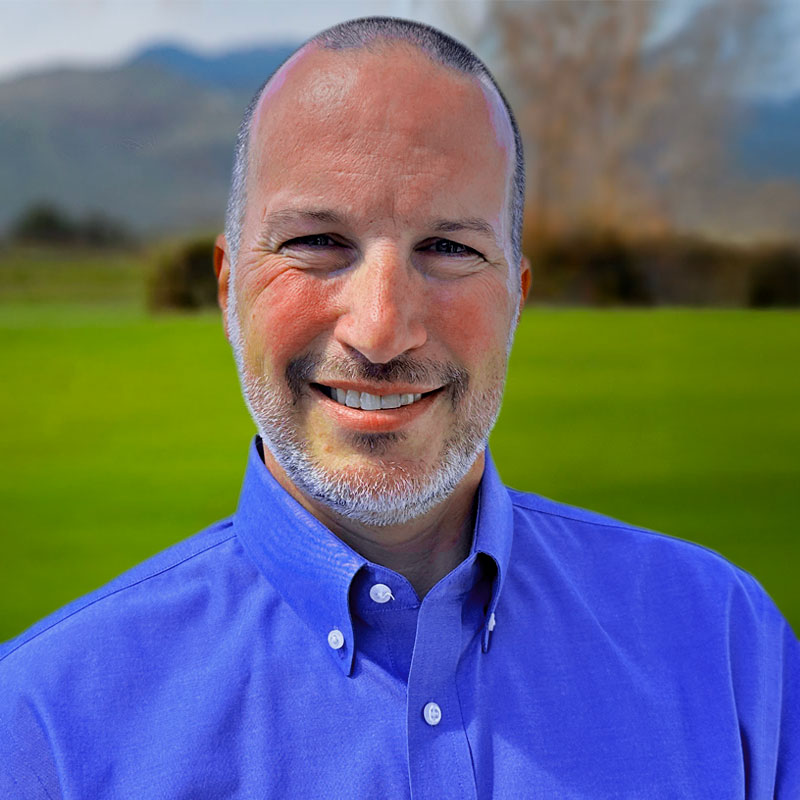Company
Since 2023, PlanetiQ has delivered its highest-quality Signal-to-Noise Ratio GNSS-Radio Occultation data daily to NOAA from a growing satellite constellation, enabling more precise weather forecasting and atmospheric research that saves lives and benefits the environment and economy.
In September, 2025, NOAA awarded PlanetiQ with a $24.3 million contract under the Commercial Data Program’s Radio Occultation Data Buy 2 (RODB-2). This represented NOAA’s single largest commercial satellite weather data purchase to date. PlanetiQ also provides proprietary global GPS-RO data to the U.S. Air Force, Navy, Space Force, and other partners to enhance operations and mission success.
Wind Energy: GPS-RO data provides high-resolution atmospheric profiles, including temperature and wind speed/direction, enabling more accurate forecasts of turbine output. This helps optimize operations, predict generation, and guide power trading decisions.
Solar Energy: GPS-RO data improves solar forecasts by measuring key conditions such as cloud cover and temperature, allowing for better integration with other energy sources and more efficient grid management.
Power Grid Optimization: Accurate forecasts of wind and solar generation support smarter resource allocation and optimized energy dispatch, boosting overall grid efficiency.
High-Resolution Profiles: GPS-RO delivers precise vertical profiles of temperature, pressure, and humidity, especially valuable over data-sparse regions like oceans.
Reduced Turbulence and Wind Shear Errors: More accurate atmospheric data from GPS-RO lowers prediction errors, helping pilots adjust flight paths and avoid hazardous conditions.
Optimized Flight Routes: Improved forecasts enable airlines to plan more efficient routes, cutting fuel use and flight times.
Enhanced Market Responsiveness: Real-time RO data enables traders to react quickly to weather-driven market fluctuations.
Optimized Trading Strategies: Accurate forecasts support better decisions in weather-sensitive commodities such as energy and agriculture.
Regional and Global Data: GPS-RO provides worldwide coverage, including regions lacking traditional weather observations.
Reduced Uncertainty: More accurate forecasts help farmers plan and reduce risks from extreme weather events.
Accurate Risk Profiling: Precise forecasts help insurers better assess risks from natural disasters and weather-related events.
Optimized Underwriting: GPS-RO data improves underwriting by refining risk estimates and premiums, supported by PlanetiQ’s extensive historical records.
Parametric Insurance: GPS-RO enables payouts based on predefined regional weather thresholds, streamlining parametric insurance policies.
Optimized Energy Distribution: Accurate forecasts help utilities anticipate demand shifts, optimize networks, and prevent weather-related disruptions.
Reduced Outages: Better awareness of upcoming events allows proactive resource management, lowering outage risks and shortening interruptions.
Infrastructure Planning: GPS-RO data informs long-term planning by showing how climate change may impact weather patterns and extreme events.
Optimized Shipping Routes: GPS-RO data helps avoid hazardous weather, reduce delays, and improve fuel efficiency.
Dynamic Route Adjustments: Real-time insights enable shipping companies to adjust routes and keep deliveries on schedule.
Accurate Wave and Wind Data: GPS-RO provides critical measurements of wave heights and wind speeds for safe, efficient operations.
Climate Research: Long-term GPS-RO data improves understanding of climate change and strengthens climate models.
Environmental Monitoring: GPS-RO tracks atmospheric conditions to assess air quality, pollution, and other environmental factors.
GPS-RO data reveals ionospheric conditions, crucial for understanding space weather events that affect satellites and communication systems.

Ira Scharf
Ira Scharf is Chief Executive Officer of PlanetiQ. Ira joined PlanetiQ in early 2023 and brings over 30 years of senior operating experience in enterprise weather solutions, artificial intelligence, cyber security and enterprise SaaS solutions. Most recently he was CEO and Founder of Spark Insights, an AI and geospatial analytics insurtech company founded in 2018 to deliver unparalleled global satellite and aerial-based insights to insurers and reinsurers for risk analysis, pricing and post-catastrophe damage assessment and response. Spark Insights was acquired by Concirrus Ltd in 2021.
Prior to that, Ira held numerous senior executive positions at major enterprise weather and cyber security firms, including Chief Operating Officer of Tomorrow.io, Chief Strategy Officer of BitSight Technologies and President, Commercial Services at AirDat (acquired by Panasonic).
Earlier in his career Ira spent eight years as Vice President and Division General Manager at The Weather Company (acquired by IBM) where he led the development of enterprise weather solutions for airlines, corporate and general aviation, energy utilities, wind and solar energy producers, agricultural entities, traders and hedge funds. He has been quoted in numerous business publications including BusinessWeek and The Economist.
Ira earned a Bachelor of Science in Computer Science from MIT, a Master of Science in Electrical Engineering and Computer Science from MIT, and an MBA from Harvard Business School.

Chris McCormick
Chris McCormick, Founder of PlanetiQ, serves as President and Chairman of the company. He has more than three decades of experience in aerospace mission design, engineering, and leadership. At PlanetiQ, he directs the company’s mission to deliver the world’s highest-quality atmospheric and ionospheric data, driving innovation by assembling talented teams and advancing technologies to solve some of Earth’s most pressing remote sensing challenges for weather forecasting and related applications.
Before founding PlanetiQ, Chris established Broad Reach Engineering, where he served as CEO for 15 years. Under his leadership, the company pioneered the development of GPS Radio Occultation sensors for missions such as COSMIC, where Chris also served as Lead Systems Engineer. Following Broad Reach’s acquisition by Moog in 2012, he became Vice President of Moog’s Space Sector, overseeing more than $250 million in revenue and expanding operations internationally.
Chris previously held roles at Spectrum Astro, DARPA’s Space Applications program, and in multiple space and terrestrial sensing and communications initiatives. He earned his B.S. in Aerospace and Ocean Engineering from Virginia Tech.

Rob Kursinski
Dr. E. Robert Kursinski is Chief Scientist of PlanetiQ, where he leads the conceptualization and development of next-generation radio occultation and other remote sensing systems and their applications to improve our ability to observe, monitor, understand and predict weather, climate, and space weather.
Prior to PlanetiQ, he was Chief Scientist at Moog Broad Reach Engineering and previously served as Associate Professor of Atmospheric and Planetary Sciences at the University of Arizona, where he developed the prototype ATOMMS (Active Temperature, Ozone and Moisture Microwave Spectrometer) system. Earlier in his career, he was a Research Scientist at NASA’s Jet Propulsion Laboratory, contributing to GPS radio occultation development and the Mars Atmosphere Climate Observatory mission.
Dr. Kursinski has authored numerous scientific publications and earned recognition for innovations in GPS occultation analysis and atmospheric remote sensing. He holds an M.S. in Electrical Engineering from USC and a Ph.D. in Planetary Science from Caltech.

Charlie Schira
“What do I love about working at PlanetiQ? The people! This team is amazing.”
As the Senior Vice President of Engineering, Charlie Schira is responsible for overseeing and guiding spacecraft development at PlanetiQ. His three decades of experience in Attitude Determination and Control Systems (ADCS) and Spacecraft Systems make him uniquely suited to develop specifications for intelligently outsourcing spacecraft components and manage relationships with supply partners on a streamlined budget and tight timeframe. He is also the quintessential team player, fostering a culture where each person helps the others succeed and celebrates the success of the project and the team as a whole.
Charlie’s most recent positions were both as a Systems Engineer, first at Google then at PlanetiQ. Google gave him the opportunity to form and lead a subsystem team where he spearheaded the development of cost-effective, innovative system architecture solutions while managing supplier relationships. He then expanded his management experience working on a project involving a constellation of small satellites for PlanetiQ.
Some of Charlie’s most influential work was done at Ball Aerospace and Technologies, where he held a number of different ADCS Lead positions. These included major management and design/development roles on the ADCS subsystems built for the Kepler space telescope and Deep Impact projects, directly contributing to significant advances in scientific knowledge and national security. His tenure at Ball also honed a talent for career development planning and mentoring up-and-coming engineers.
Charlie earned his Bachelor’s and Master’s degrees in Mechanical Engineering from University of Illinois and Stanford University, respectively. In addition to co-authoring several papers on his Kepler and Deep Impact experiences, his passion for sharing knowledge has spilled over into volunteer work tutoring disadvantaged high school kids. He is an avid cyclist and loves hiking in the Colorado mountains.

Paul McGaugh
Paul McGaugh is Vice President of Hardware Engineering at PlanetiQ, where he leads the design and development of satellite electronics. With deep expertise in spacecraft component architecture, manufacturing, and testing, he guides technical teams in delivering reliable, cutting-edge hardware that advances PlanetiQ’s mission. His career reflects a passion for space technology and decades of hands-on experience solving the unique challenges of building electronics for orbit.
Before joining PlanetiQ, Paul was Associate Principal Engineer at Moog Space and Defense Group, where he honed his skills as both engineer and project manager. There, he contributed to the BRE440 system-on-a-chip and the SB-SAT communication terminal, both widely used in LEO spacecraft. Earlier, as a Senior Research Engineer at Southwest Research Institute, he designed single board computers for various missions, a solid state recorder for NASA’s IMAGE mission, FPGA circuitry for the PEPE instrument on Deep Space 1, and command and data handling boards for multiple satellites. He began his career at Honeywell Process Solutions, developing safety-critical control systems electronics, an experience that instilled a lasting focus on reliability.
Paul earned his B.S. in Electrical Engineering from Lamar University. Inspired by the golden age of space exploration, he continues to push the boundaries of spacecraft electronics design.

Jonathan Brandmeyer
Jonathan Brandmeyer is Senior Vice President of Software Engineering at PlanetiQ, where he applies deep expertise in control systems, dynamic analysis, and state estimation to GNSS radio occultation. He has led the design and implementation of PlanetiQ’s GNSS signal acquisition system, tracking control loops, and precise orbit determination, as well as the world’s lowest-latency space weather data preprocessing pipeline. His work integrates advanced algorithms with large-scale computing to deliver operational accuracy and resilience.
Previously, Jonathan was an embedded software and controls engineer at Alphabet’s Titan Aerospace team and contributed to Google Geo, developing calibration and geolocation systems at global scale. He also headed Boulder Wind Power’s power electronics team, advancing silicon carbide turbine and grid-interactive power converters. Earlier in his career, he worked across embedded engineering projects in multiple industries. A former U.S. Navy Nuclear Propulsion Plant Supervisor, Jonathan holds a B.S. in Mechanical Engineering from North Carolina State University.

Donny Patullo
Donny Pattullo is Vice President of Business Development at PlanetiQ, where he leads the company’s expansion into commercial markets. He brings more than 20 years of experience in technical sales, weather products, marketing, and business development.
Before joining PlanetiQ in 2025, Donny spent five years at BeaconLive, where he directed sales, marketing, business development, and strategy for a niche SaaS business in the continuing education space. Earlier in his career, he held a series of leadership and business development roles across the weather and technology sectors, including positions at Tomorrow.io (formerly ClimaCell), Limelight Networks, IBM, The Weather Company, and WSI.
Donny earned a B.S. in Aeronautical Science from Embry-Riddle Aeronautical University and holds a Commercial Pilot’s License with Instrument Rating. He lives in Massachusetts with his young family and enjoys boating, traveling, and often finding ways to combine the two.